ABOUT TODAY’S GUEST | DR. BENJAMIN HARDY
GET THE BOOK – PERSONALITY ISN’T PERMANENT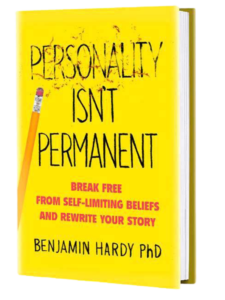
In his new book, Personality Isn’t Permanent: Break Free from Self-Limiting Beliefs and Rewrite Your Story, psychologist and bestselling author Benjamin Hardy, PhD, debunks the pervasive myths about personality that prevent us from learning—and provides bold strategies for personal transformation.
CLICK HERE to get your copy today!
Q&A WITH BENJAMIN HARDY
You mention in the book that personality is created, not discovered. Let’s start right in with this topic and have you unpack that for us a bit.
• A lot of people think that personality is innate, inflexible, it’s who you always will be.
• But research shows clearly that your personality is going to change over time. The question is what’s creating those changes?
• Rather than assuming that the past is the thing driving you, it’s actually the future that’s driving us. Our view of our own future is actually the biggest predictor of our feelings and our behaviors. Your future self, your goals, etc.
• There is a difference between identity and personality. We all assume an identity, and that identity shapes our behavior.
• We should be very intentional about our identity and intentional about our goals, because those are the things that shape our behavior which over time becomes our personality.
“Human beings are works in progress that mistakenly think they’re finished.” (from Daniel Gilbert, Harvard psychologist)
Tell us why personality tests can be more detrimental than helpful.
• Who we are in the present isn’t who we’re always going to be.
• Most of the personality tests give you a score or label that overemphasizes the present and the past.
• We under-predict how much we are going to change in the future, and we don’t spend enough time imagining that change.
• When you assume a label that’s very present or past focused, it stops you from imagining your future self being any different. This isn’t good for changing your behavior in the future, or experience any form of growth.
Tell us about the transformation that occurred for you during your church mission.
• I came from a really rocky family background, barely graduated from high school, was playing World of Warcraft, sitting on my couch, and drinking Mountain Dew when I was 18-19 years old. I had no real purpose in my life.
• I decided to go on a Church Mission, and I had 2 years of peak experiences during that time. I ultimately came out of it a completely different person.
• You develop confidence and disciplines through having experiences like this.
One of my strongest core principles for life is the idea that we can choose the meaning for anything that happens in our lives.Speak about the idea of meaning-making, and how it impacts our lives.
• This is really one of the most important concepts in life.
• Your life is not about what happens to you, it’s about the meaning you GIVE to what happens to you.
• Usually, the meaning we give to something is based on our emotional reaction. The more mature or developed you become, the more you can proactively give better meanings.
• The meaning we give initially is based on the emotions that we feel.But as you mature, you can quickly get to the point of reframing any experiences to find a positive, useful, beneficial meaning, one that can enable you to learn from your experiences rather than being defined by them.
• This is crucial for overcoming any life traumas or otherwise negative experiences.
• The Gap and the Gain — Dan Sullivan : You can either focus on the gap (the loss) or the gains (potential benefits).
• Ben’s next book will be about the science of hope. People with high hope are often able to find multiple pathways to what they want. People with low hope often get caught up in the same pathways, so they don’t find success.
• Ben references Kobe Bryant and “strategic remembering” … quickly forgetting about failures while firmly implanting our successes in our brains.
“Our true and authentic self isn’t who we currently are.Instead, it is our deepest-held aspirations, dreams, and goals.”
— AMAZING SECTION HERE FROM PAGE 120 IN BEN’s BOOK.
But in reality, we are overly shaped by negative experiences, and so many people develop a fixed mindset. How does someone break free from that?
• You have to look back on past experiences with different eyes, realizing that you are not the person you once were.
• These things happened for me, not to me.
• Take the time to really consider the person you WANT to be.
• Listen to better information. Remove the negative influences that are killing your hope.
• Set goals, and get support on those goals from your network.
• Any form of intentional or courageous action toward your goals will increase your view of what you CAN do.
• “Winners find ways.”— Joe Polish
• Find new and better ways to accomplish what you want to.
“What got you here won’t get you there.”
Your experience in selling Cutco was very brief, and wasn’t really successful. How would you encourage others who have experiences where they don’t succeed to reframe those experiences?
• At that time, I couldn’t translate in my mind how selling Cutco was going to help me achieve my bigger goals in life.
• What I learned from that experience was to pursue different means to achieve my desired ends. It helped me to find more direct approaches to my goals as a professional writer.
• I actually view it as a positive experience, and I’m grateful for it.
• You can always learn to frame such experiences as a gain, not a gap.
• Get back to your vision, and find a new and/or better way.
• If you’re really ready for massive change, you’ll seek lots of feedback and be open to hard truths. Be willing to hear them and MAKE CHANGES.
• Rather than shielding ourselves from realizing why we are stuck, we should be actively seeking ways to get ourselves unstuck.
You reference research that says that over a 10-year period of time, you’re not going to be the same person.But I feel like I know people who ARE the same as they were a number of years ago, and perhaps that’s because they aren’t consciously attempting to grow and evolve.Doesn’t change require that constant conscious effort?
• CHANGE does not, but GROWTH does. Change is inevitable, growth is optional.
• Many people grow way less than they could because they’re not actively and consciously seeking and pursuing a future self.
How would you counsel someone to define their future self?
• First step is to recognize that your future self is not the same person you are today. Your future self WILL be a different person. They’re going to be in a different environment, different situation, they’re going to have gone through different experiences and learnings, they’ll have different priorities, different desires, different goals.
• Define who you want that future self to be.All the elements … relationships, career, who you are as a person. This vision will drive your behavior and develop your personality.
• Actively tell people about who you want to be.Tell people about your goals and get accountability around them.
Why is it so powerful to commit to one major goal?
• Focus creates motivation and momentum.
• When you’ve decided your future self, you need to set a tangible goal that will help you get there.
• If one major outcome were true that could make everything else fall into place, what would that be?
• Ben’s one major goal was pursuing a 6-figure book deal.
• Having a role that provides opportunities for transformation is key.
Another core principle that I hold strongly in my mind is the idea that repetition creates buy-in, and we all need to consistently be reminded of our goals and what we want. Can you speak about your concept of “strategic remembering?” And can you tell our audience about the Culture Wall in your home?
• Strategic remembering is about designing your environment so that you are constantly reminded about who you want to be. This stops you from forgetting, and constantly pulls you forward.
• “If we do not create and control our environment, then our environment creates and controls us.”— Marshall Goldsmith
• Ben had a “Culture Wall” created for his home.
• 20 pictures that can teach more than reading 100 books
• Gaping Void can create this for anyone.
• These are concepts that I want in my environment that remind me of principles that allow me to be inspired, and that also influence my kids.
Check out an example of a culture wall below …
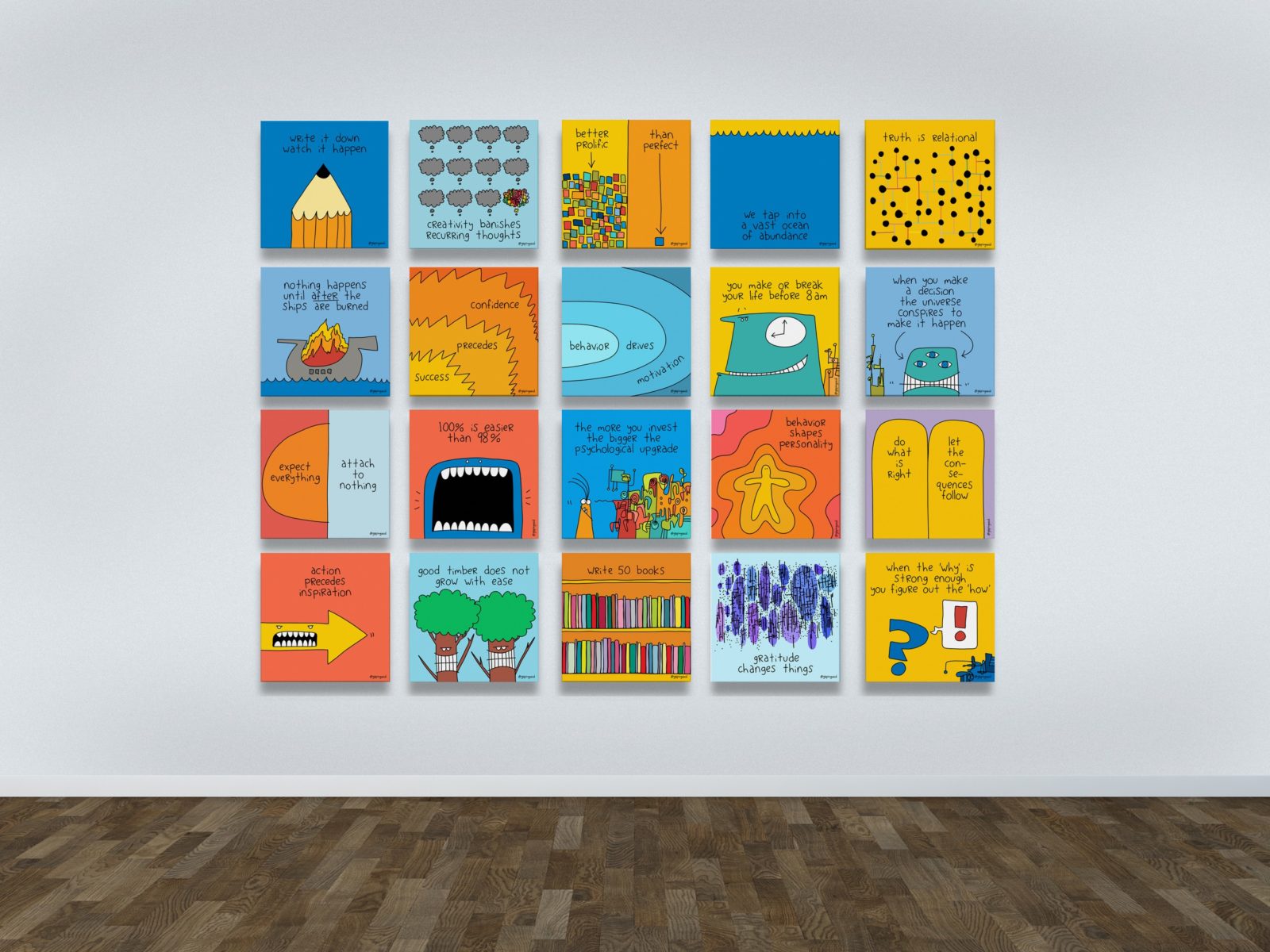
Some of the concepts up close…
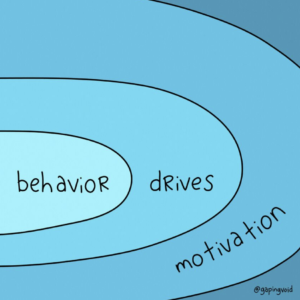
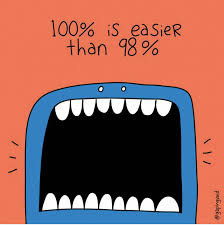
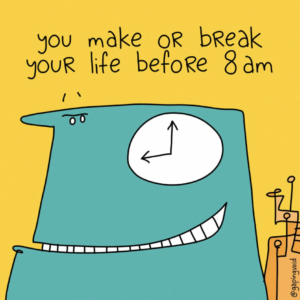
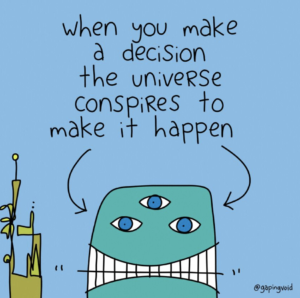
Ben, what are YOU most excited about for your future?
• Writing next book on Hope
• Sharing Personality Isn’t Permanent
• Being a good Dad
• I love the future, and I’m really excited for it!
FINAL THOUGHTS:
• Personality is created, not discovered. What drives it most is our vision of the future.
• The future YOU will be different in so many ways. Become more deliberate about crafting HOW you will be different. Envision your future self, write it down, and set goals that are consistent with who you want to be.
• Drive your personality evolution through setting goals vs. allowing your goals to be limited by your current personality.
• It’s great to have a vehicle to put those goals into action. If you are working in Cutco, you have a great vehicle for this conscious evolution.
• Learn to proactively and quickly give a better meaning to things that happen in your life.
• Remember the things that you want. Create a system of reminders. Make a Culture Wall.
Link to buy the book, Personality Isn’t Permanent
Check out the video of this conversation, including when Ben shows us his Culture Walls in his home, by visiting the Changing Lives Podcast YouTube channel.
To get access to all episodes and valuable free resources, visit our podcast page!
As of October 2020, one of the podcast’s sponsors is Organifi, makers of Cutco-quality superfood blends. Visit Organifi.com to view all of their options, and enter discount code “CLSK” for 15% off your purchase.